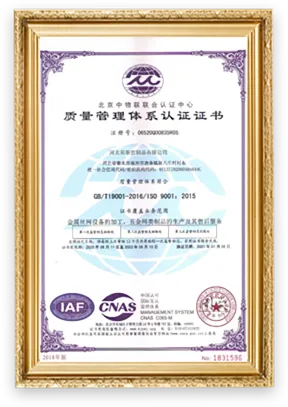Aug . 13, 2024 07:46 Back to list
Exploring the Versatility and Applications of Flexible Hoses in Various Industries and Uses
The Versatility and Importance of Flexible Hoses
In the modern world, flexible hoses play an essential role in various industries, ranging from plumbing and automotive to manufacturing and agriculture. Their design allows for flexibility and adaptability, providing fluid conveyance solutions that traditional rigid pipes cannot offer. In this article, we will explore the characteristics, applications, and benefits of flexible hoses.
What are Flexible Hoses?
Flexible hoses are specifically designed tubes that are made to transport a variety of fluids, including water, gas, and even chemicals. Unlike rigid pipes, flexible hoses are made from materials such as rubber, plastic, or metal, which allow them to bend, twist, and maneuver around obstacles. This adaptability makes them an ideal choice for installations in tight or complicated spaces where rigid pipes would be impractical.
Key Characteristics
The primary characteristic of flexible hoses is their ability to withstand lateral and axial movements while maintaining a secure seal. Typically, these hoses are reinforced with woven fabrics or metal braids, enhancing their durability and pressure tolerance. Additionally, flexible hoses are available in various diameters and lengths, catering to different requirements across multiple applications.
Another significant attribute of flexible hoses is their resistance to extreme temperatures and a range of chemicals. For instance, silicone hoses can withstand high temperatures, making them suitable for automotive engines, while stainless steel hoses are ideal for handling corrosive substances in chemical processing.
Applications
flexible hose

Flexible hoses find applications across numerous fields
. In the plumbing industry, they are commonly used as supply lines for faucets and toilets, enabling easy installation and maintenance. In the automotive sector, flexible hoses are employed in fuel systems, cooling systems, and air conditioning units, where their flexibility helps accommodate engine movements and vibrations.The manufacturing industry also extensively uses flexible hoses in various production processes. For example, they are essential for the transport of materials such as air, water, steam, and other liquids through machinery. In the agricultural sector, flexible hoses are crucial for irrigation systems, providing farmers with a reliable means of delivering water to crops efficiently.
Benefits
One of the significant benefits of using flexible hoses is their lightweight design, which simplifies installation and reduces labor costs. Their flexibility allows for quick connections and disconnections, making routine maintenance and repairs much easier.
Moreover, the ability of flexible hoses to absorb vibrations and movements enhances the longevity of the associated systems. This feature is particularly important in automotive applications, where engine vibrations can lead to wear and tear on rigid connections. Flexible hoses can mitigate this issue, leading to improved performance and reduced maintenance costs over time.
Additionally, the diverse range of materials available for flexible hoses means that there is a suitable option for nearly every application. From food-grade hoses for culinary uses to high-pressure hoses for industrial services, the versatility of flexible hoses is unparalleled.
Conclusion
In conclusion, flexible hoses are indispensable components in a multitude of industries due to their adaptability, durability, and ease of installation. Their ability to transport various fluids while accommodating movement and vibration makes them a superior choice for both industrial and residential applications. As technology continues to evolve, the innovation surrounding flexible hoses will surely expand, leading to even more advanced solutions for fluid conveyance in the future. Whether in plumbing, automotive, or agriculture, the significance of flexible hoses cannot be overstated.
-
The Role of Field Wire Fence in Grassland Conservation
NewsJul.15,2025
-
Stainless Steel Razor Wire Durability in Coastal Environments
NewsJul.15,2025
-
Enhancing Home Security with Mesh Fences
NewsJul.15,2025
-
Diamond Mesh Wire for Small Animal Enclosures
NewsJul.15,2025
-
Common Wire Nail Tensile Strength Testing for Woodworking
NewsJul.15,2025
-
Barbed Wire Corrosion Resistance Galvanization Techniques
NewsJul.15,2025









